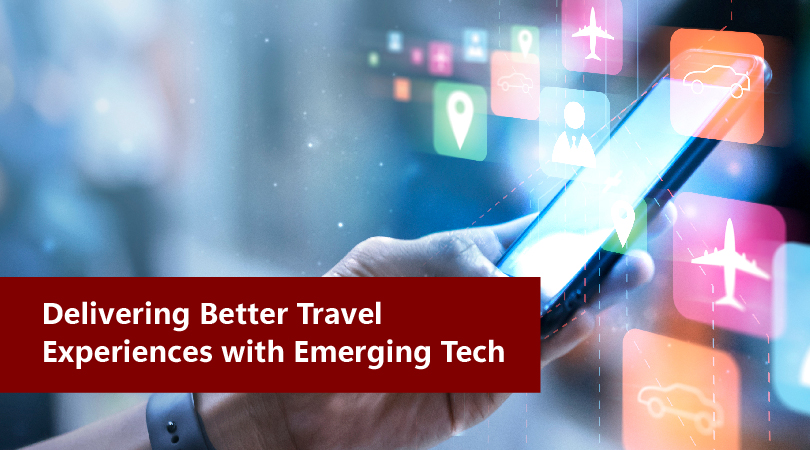Generative AI and advanced analytics are emerging as transformative forces in the ever-evolving travel and hospitality industry. These technologies offer the potential to reinvent customer experiences, streamline operations, and address the challenges of safety and personalization.
Enhancing Customer Experience through Advanced Analytics
Imagine a scenario where a hotel guest, upon arrival, is greeted by a digital assistant, personalized to their preferences, learned from their previous stays. The digital assistant checks them in and suggests activities based on their interests, weather conditions, and local events – all processed and optimized by advanced analytics. Such use of technology not only elevates the customer experience but also streamlines the hotel’s operations.
Travel agencies, powered by predictive analytics, can tailor vacation packages based on a customer’s past travel history, browsing habits, and social media activity. For instance, a couple that enjoys adventure sports could receive offers for destinations renowned for such activities, while those preferring cultural experiences get recommendations for historically rich locations. This level of personalization not only enhances customer satisfaction but also boosts the likelihood of repeat business.
Generative AI, on the other hand, can create virtual experiences, allowing customers to ‘try before they buy.’ For example, a virtual reality tour of a cruise ship cabin designed by AI algorithms based on the customer’s preferences can significantly influence their decision-making process. Immersive AI-powered experiences bridge the gap between customer expectation and reality, reducing post-purchase dissonance. Here are some ways businesses can harness AI to create such experiences.
Improving Safety and Efficiency in Operations: AI can play a pivotal role in the context of heightened health and safety concerns. Hotels and airlines can use predictive models to anticipate busy periods, adjust staffing levels, or modify cleaning schedules. For instance, an AI system could predict a surge in hotel check-ins and suggest proactively increasing housekeeping staff.
Crowdsourced Algorithms for Better Travel Solutions: Crowdsourcing solutions through algorithms can help address specific challenges in the travel industry. For example, an airline might use crowdsourced solutions to optimize flight paths for fuel efficiency or to enhance the in-flight entertainment system based on passenger feedback and preferences.
Reducing Environmental Impact: Generative AI can aid in reducing the environmental footprint of travel. By optimizing flight routes or hotel energy consumption, these technologies contribute to sustainability, a growing concern among modern travelers.
Managing Customer Expectations and Feedback: In the era of social media, managing customer expectations and feedback becomes crucial. Advanced analytics can monitor social media channels for customer sentiment, providing real-time feedback to businesses. This immediate insight allows companies to address issues promptly and improve service continuously.
Investing in Change Management for Long-term Benefits
To successfully integrate these technologies, deciding to invest in change management is essential. Staff training, updating IT infrastructure, and aligning organizational goals with technological capabilities are crucial steps. For instance, training hotel staff to interact with AI-powered systems ensures smoother operations and better customer service.
The travel and hospitality industry stands at the cusp of a transformation driven by generative AI and advanced analytics. These technologies offer a pathway to recover from the setbacks of the pandemic and to leap forward into a future where travel is safer, more efficient, personalized, and enjoyable. Companies that embrace these changes can look forward to meeting and exceeding customer expectations, securing their position in a very competitive marketplace.


